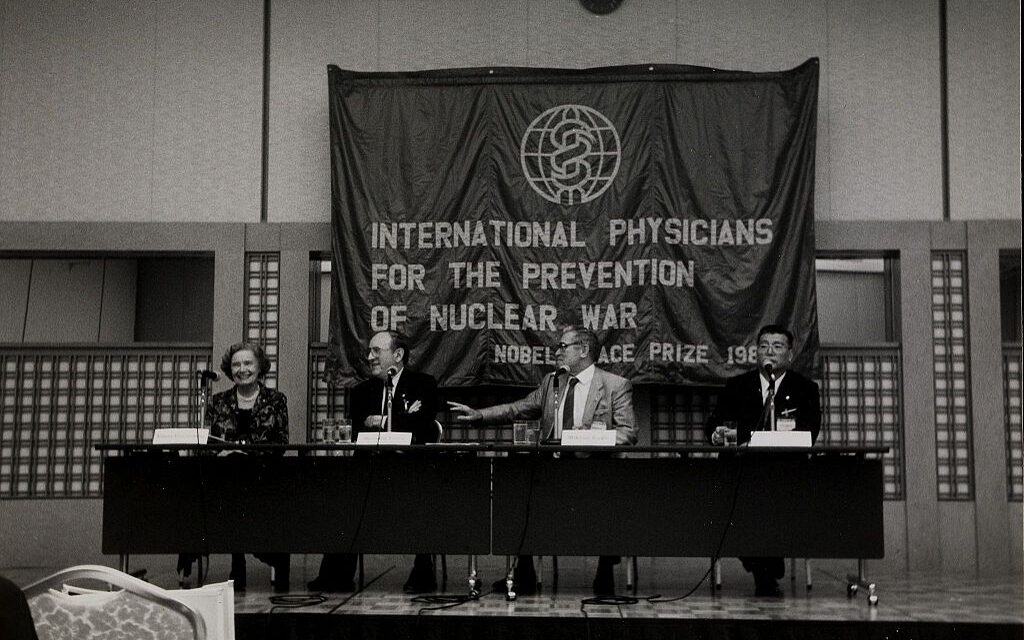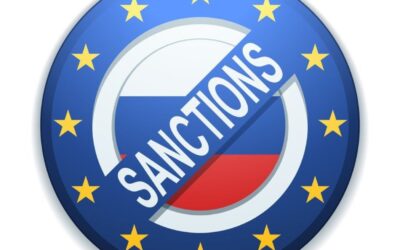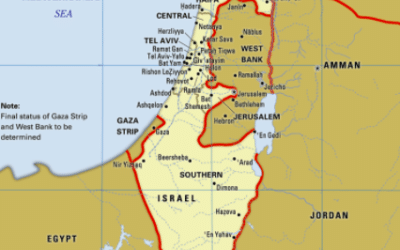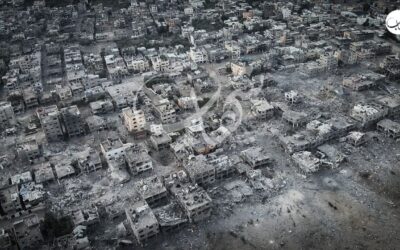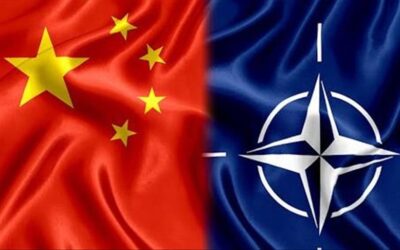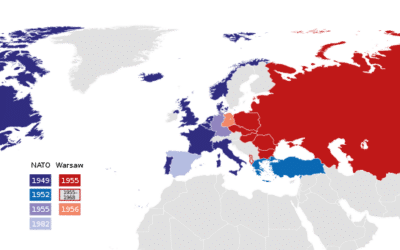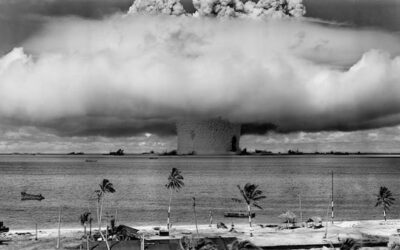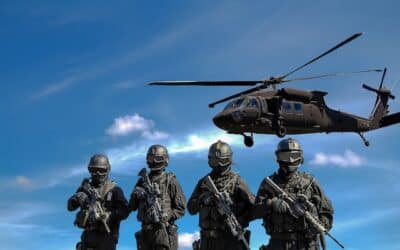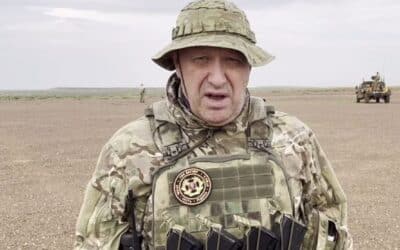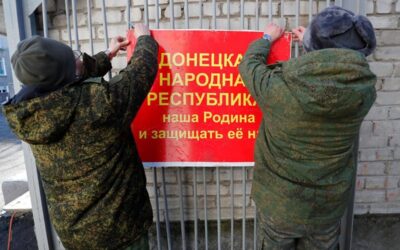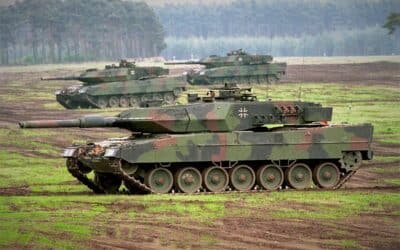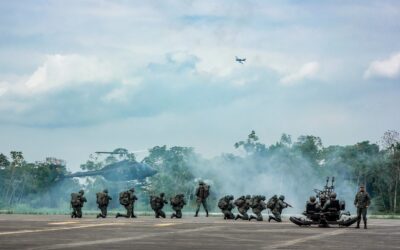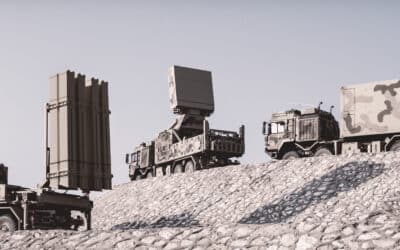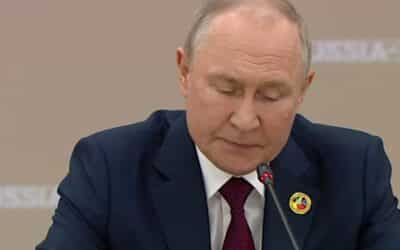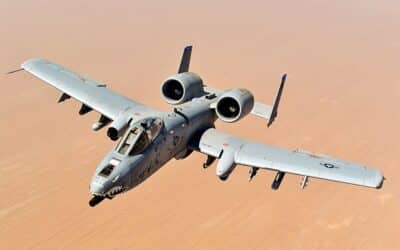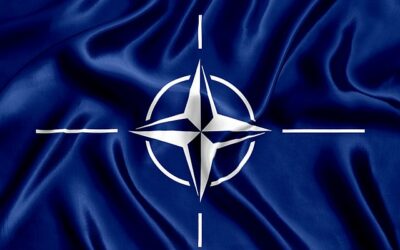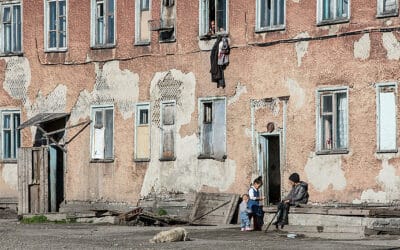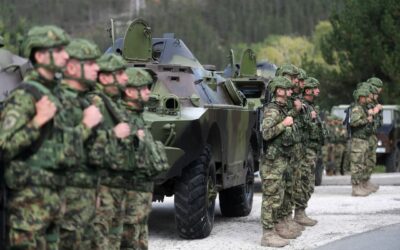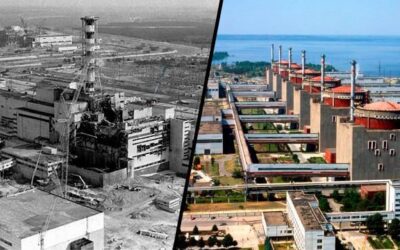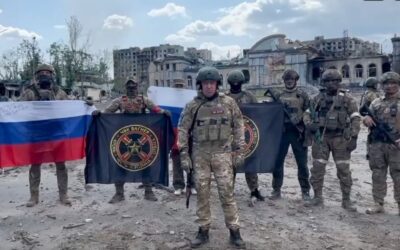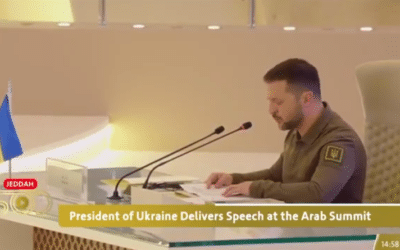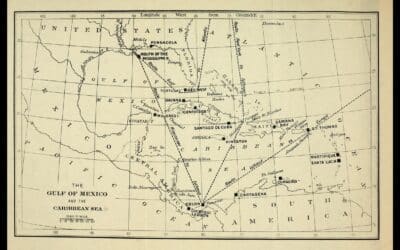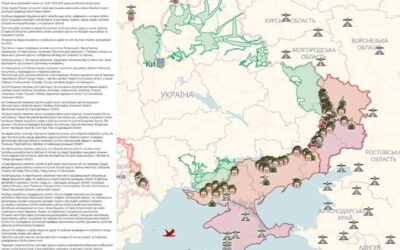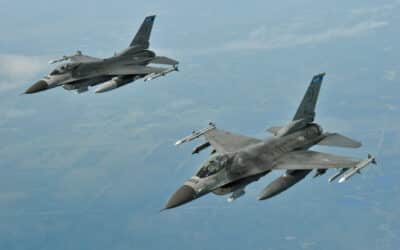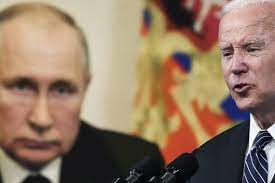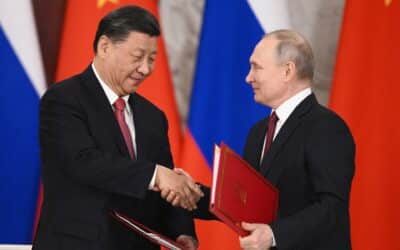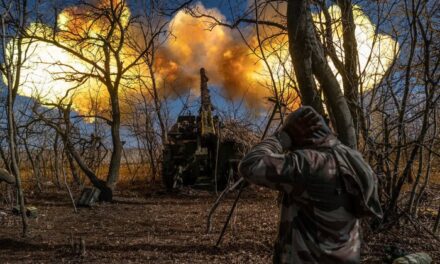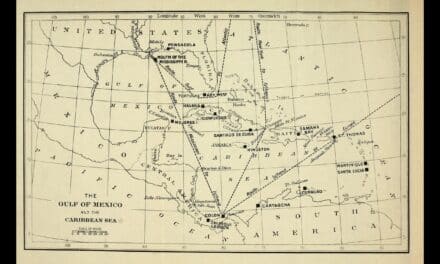The Devastating Impact of Nuclear War
Imagine a world in smoke and debris, where survival is a daily battle. The fear of nuclear war is a reality (especially when Putin threatens to nuke Ukraine and half of Europe) that’s been looming over us for decades. It’s a scenario straight from the pages of a dystopian novel. In this blog, we’re going to delve into the unsettling question of what would happen if there was a nuclear war.
In simple terms, a nuclear war would spell absolute disaster. It would not only cause immediate destruction, but the effects would ripple through generations. But let’s not jump to conclusions just yet. We’ll explore this topic in-depth, examining the potential outcomes and what they mean for us and our planet’s future.
Understanding Nuclear War
Nuclear war is a frightening concept that carries immense destructive potential. In this section, we will delve into the basics of nuclear war, its historical incidents, and the countries that possess nuclear capabilities. Brace yourself as we explore this sobering topic.
What is a Nuclear War?
A nuclear war is a conflict in which nuclear weapons are deployed, leading to mass devastation and loss of life. These weapons possess an unprecedented destructive power, capable of leveling entire cities with a single strike. The devastating impact of a nuclear war is a consequence of the immense energy released during a nuclear explosion.
History of Nuclear War Incidents
Throughout history, humanity has witnessed several incidents involving the use or close calls with nuclear weapons. These incidents stand as chilling reminders of the potential consequences of nuclear warfare.
One such incident was the bombings of Hiroshima and Nagasaki during World War II. These bombings remain the only instances of nuclear weapons being used in warfare, resulting in the deaths of thousands and long-lasting effects on the survivors.
Another notable incident occurred during the Cold War, with the Cuban Missile Crisis in 1962. The world held its breath as tensions peaked between the United States and the Soviet Union, bringing them to the brink of nuclear conflict. Fortunately, through diplomatic negotiations, disaster was averted.
These historical incidents serve as cautionary tales, highlighting the need for global efforts to prevent the use of nuclear weapons and maintain peace.
Countries with Nuclear Capabilities
Currently, there are several countries known to possess nuclear capabilities. These nations have the ability to produce and deploy nuclear weapons, which adds complexity and tension to international relations.
Some of the countries with nuclear capabilities include:
- United States
- Russia
- United Kingdom
- France
- China
- India
- Pakistan
- North Korea
These nations, known as nuclear powers, possess a significant influence on global politics. The possession of nuclear weapons grants them a level of deterrence and strategic advantage, but it also raises concerns about nuclear proliferation and the potential for conflict.
In conclusion, understanding the concept of nuclear war is crucial in recognizing the magnitude of its implications. Through exploring the basics of nuclear war, examining historical incidents, and acknowledging the countries with nuclear capabilities, we gain a deeper understanding of the complexities and risks associated with this grave threat to humanity. Stay with us as we continue to explore the implications of a potential nuclear war in the upcoming sections.
Immediate Impact of Nuclear War
Nuclear war is a horrifying concept, one that carries immense destructive potential. The immediate impact of such a catastrophic event would be nothing short of devastating. In this section, we will explore the profound consequences of a nuclear war, including the immense loss of human lives, the destruction of infrastructure, and the severe impact on the environment.
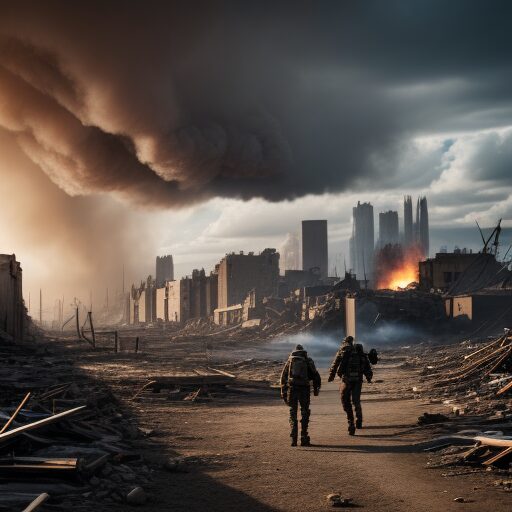
Devastation and Destruction
The devastation caused by a nuclear war would be unimaginable. The sheer power of nuclear weapons can obliterate entire cities in an instant, reducing everything in their path to rubble and ashes. The level of destruction would be unprecedented, leaving behind a haunting landscape of wreckage and desolation.
Buildings, roads, and landmarks that once symbolized human progress and civilization would be reduced to ruins. The magnitude of destruction would be overwhelming, as entire communities are decimated in the blink of an eye. The sight of scorched Earth and collapsed structures would be a chilling reminder of the destructive capabilities of nuclear weapons.
Loss of Human Lives
Perhaps the most tragic consequence of a nuclear war would be the loss of countless human lives. The immediate impact would result in an astronomical death toll, with casualties ranging from the tens of thousands to the millions, depending on the scale of the conflict. The loss of innocent lives, families torn apart, and the irreplaceable human potential snuffed out would be an unimaginable tragedy.
The aftermath of a nuclear war would also bring about long-term health effects for survivors. Radiations released from nuclear explosions can cause severe injuries, burns, and radiation sickness. The survivors would face the daunting challenge of rebuilding their lives amidst the physical and emotional scars left by such a catastrophic event.
Impact on Infrastructure and Environment
The impact of a nuclear war extends far beyond human lives. The infrastructure that supports our societies, such as power plants, transportation systems, and communication networks, would be severely affected. Essential services like electricity, clean water, and healthcare would become scarce, further exacerbating the already dire situation.
Moreover, the environment would bear the brunt of a nuclear war. The detonation of nuclear weapons releases a colossal amount of energy, triggering intense heat, firestorms, and massive shockwaves. These destructive forces would lead to widespread forest fires, uncontrollable pollution, and toxic contamination of air, water, and soil.
The consequences of a nuclear war would extend beyond the immediate impact, leaving a lasting legacy of devastation and suffering for generations to come. The long-term effects on ecosystems, agriculture, and climate patterns would further exacerbate the already dire situation, posing significant challenges to the survival and recovery of both human and animal life.
As we reflect upon the immediate impact of a nuclear war, it becomes clear that the devastation and destruction, the loss of human lives, and the profound impact on infrastructure and the environment are too significant to ignore. The alarming potential of nuclear weapons underscores the importance of global efforts to prevent such a catastrophic event and work towards a world free from the threat of nuclear war.

Long-Term Consequences of Nuclear War
In the devastating event of a nuclear war, the long-term consequences are nothing short of catastrophic. The aftermath would bring about a myriad of challenges that would impact every aspect of life on Earth. Let’s delve into some of the grim realities that would unfold in such a scenario.
Nuclear Winter
One of the most alarming consequences of a nuclear war is the occurrence of a nuclear winter. This phenomenon arises when the massive amount of smoke and debris released into the atmosphere from nuclear explosions blocks sunlight from reaching the Earth’s surface. As a result, temperatures plummet, and darkness engulfs the planet for an extended period.
Imagine a world where sunlight is obscured, and the once-vibrant colors of nature fade into a dreary grayscale. Plants struggle to photosynthesize, leading to widespread crop failure. With limited access to sunlight, the ecosystem becomes disrupted, causing a ripple effect throughout the food chain.
Food and Water Scarcity
In the wake of a nuclear war, food, and water scarcity would become prevalent concerns. The destruction caused by the initial blasts, coupled with the nuclear winter, would decimate agricultural systems and contaminate water sources. The ability to sustain a population would be severely compromised.
Communities would face the daunting task of rationing limited supplies and finding alternative sources of sustenance. Food shortages could lead to widespread malnutrition, starvation, and an increased risk of disease. The struggle for survival would become a daily battle, with no easy solutions in sight.
Health Effects
The health effects resulting from a nuclear war would be both immediate and long-lasting. The initial blasts would cause immense damage, resulting in casualties from the sheer force of the explosions. However, the aftermath brings about a whole new set of health challenges.
Radiation exposure would be a significant concern, as it can lead to acute radiation sickness and increase the risk of developing cancer. The genetic impact could be felt for generations as radiation-induced mutations are passed down through DNA. Survivors would face a lifetime of health complications, both physical and psychological, as they navigate a world forever changed.
As harrowing as these consequences may be, it is essential to understand the gravity of nuclear war. The devastating effects would extend far beyond the immediate aftermath, reshaping the fabric of our existence. It serves as a stark reminder of the importance of peace, diplomacy, and the preservation of our world.
Remember, this is merely a glimpse into the potential repercussions of a nuclear war. The reality is far more complex and horrifying. It is our collective responsibility to prevent such a catastrophic event from ever becoming a reality.
Global Political and Economic Fallout
When we delve into the terrifying realm of a hypothetical nuclear war, it’s crucial to understand that the consequences would extend far beyond the immediate destruction caused by the detonation of nuclear weapons. The global political and economic fallout would be catastrophic, reshaping the world as we know it. In this section, we will explore three major aspects of this fallout: political instability, economic collapse, and global power shifts.
Political Instability
Following a nuclear war, the political landscape would be marred by chaos and instability. Governments would crumble, leaving a power vacuum that various factions would scramble to fill. With the breakdown of established systems and institutions, the rule of law would be compromised, leading to social unrest and anarchy.
In such a grim scenario, survival instincts would kick in, and nations might adopt a more aggressive stance in order to secure their own interests. This could potentially lead to conflicts over resources, territorial disputes, and even attempts at domination. The delicate balance of power that currently exists among nations would be shattered, resulting in a dangerous and unpredictable world.
Economic Collapse
The economic consequences of a nuclear war would be devastating. The destruction of vital infrastructure, such as transportation networks, power grids, and communication systems, would bring trade to a grinding halt. The global economy, intricately interconnected, would plunge into a state of collapse.
With supply chains disrupted and markets in disarray, the scarcity of essential goods and services would become the norm. The resulting hyperinflation and scarcity would exacerbate social inequalities, as only the wealthy would have the means to secure necessary resources. The world as we know it, built on trade and commerce, would crumble under the weight of economic ruin.
Global Power Shifts
In the aftermath of a nuclear war, the balance of global power would undergo a seismic shift. Superpowers that once dominated the international stage might find themselves diminished, while smaller nations could rise to prominence. The destruction of major military capabilities and the loss of key infrastructure would level the playing field to some extent.
Emerging nations, previously overshadowed by the dominant powers, could seize the opportunity to assert their influence and shape the new world order. In this era of uncertainty, alliances would be reshuffled and new alliances forged. The power dynamics that had governed international relations for decades would be permanently altered.
In conclusion, the global political and economic fallout resulting from a nuclear war would be nothing short of catastrophic. Political instability, economic collapse, and global power shifts would redefine the world and plunge us into a new era of uncertainty. It is a stark reminder of the urgent need to work toward disarmament and global peace in order to prevent such a devastating scenario from ever becoming a reality.
Societal Changes and Psychological Impact
When imagining the catastrophic consequences of a nuclear war, it is impossible to overlook the profound societal changes and lasting psychological impact that would inevitably occur. The sheer magnitude of such an event would disrupt social order, inflict deep psychological trauma, and lead to significant cultural and societal transformations. Let us explore these aspects in detail.
Disruption of Social Order
In the aftermath of a nuclear war, the fabric of society would be torn apart, leaving behind a landscape of chaos and uncertainty. The destruction of infrastructure, mass casualties, and displacement of populations would disrupt the functioning of governments, economies, and essential services. The once familiar structures that upheld society would crumble, leading to a breakdown of law and order.
Without the rule of law, people would face immense challenges in obtaining basic necessities such as food, water, and shelter. Scarcity would become the new norm, resulting in widespread desperation and competition for limited resources. The breakdown of social order would give rise to an environment where survival instincts prevail, potentially leading to increased violence and lawlessness.
Psychological Trauma
The psychological impact of nuclear war cannot be overstated. The sheer terror and devastation caused by such an event would leave lasting scars on the minds of survivors. Witnessing the destruction of cities, the loss of loved ones, and the constant fear of radiation would create a collective trauma that reverberates through generations.
Post-traumatic stress disorder (PTSD) would become a prevalent mental health issue, affecting a significant portion of the population. The constant reliving of the traumatic experiences, nightmares, and hyper-vigilance would contribute to a sense of persistent fear and anxiety. The psychological toll would be compounded by the grief and mourning for those who perished, further deepening the emotional wounds.
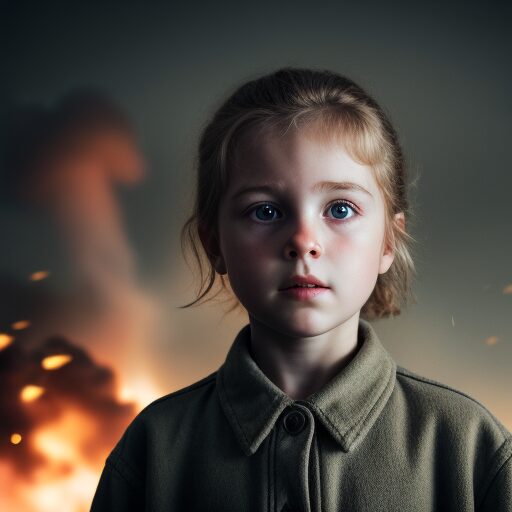
Cultural and Societal Changes
A nuclear war would undoubtedly reshape the cultural and societal landscape in profound ways. The shared trauma and loss would forge new bonds among survivors, creating a sense of solidarity and communal resilience. The values and priorities of society would undergo a dramatic shift as the focus shifted from individual pursuits to collective survival.
Cultural expressions, art, and literature would serve as outlets for processing grief and documenting the horrors of the war. New narratives and stories would emerge, reflecting the resilience and determination of humanity in the face of unimaginable devastation. Institutions and traditions that no longer hold relevance in the post-war world might fade away, making room for new ideologies and ways of life.
In conclusion, the societal changes and psychological impact resulting from a nuclear war would be far-reaching and long-lasting. The disruption of social order, the psychological trauma endured by survivors, and the cultural and societal transformations that would unfold are just a glimpse into the grim reality of such an event. It is crucial for us to recognize the urgency of preventing such a catastrophe and to work toward a world where peace and diplomacy prevail.
International Relations and Arms Control
International relations and arms control plays a crucial role in shaping the global landscape. In the event of a nuclear war, the consequences would be catastrophic, and therefore, it is imperative to explore the efforts made toward nuclear disarmament, the potential escalation of the arms race, and the role of international organizations in maintaining peace and stability.
Nuclear Disarmament Efforts
Nuclear disarmament refers to the reduction and elimination of nuclear weapons worldwide. It is a complex endeavor that requires the cooperation of nations and a collective commitment to achieving a nuclear-free world. Various treaties and agreements have been established to address this issue.
One notable example is the Treaty on the Non-Proliferation of Nuclear Weapons (NPT). This Treaty aims to prevent the spread of nuclear weapons, promote disarmament, and facilitate the peaceful use of nuclear energy. It has been signed by the majority of countries, making it a cornerstone of international efforts to control nuclear weapons.
Efforts towards nuclear disarmament also include bilateral negotiations between countries possessing nuclear weapons. These negotiations often involve discussions on reducing stockpiles, increasing transparency, and implementing verification mechanisms to ensure compliance.
Arms Race Escalation
An arms race refers to a competitive buildup of military forces and weapons between nations. In the event of a nuclear war, the potential for an arms race to escalate is a significant concern. As tensions rise, countries may feel compelled to increase their nuclear capabilities, leading to a dangerous cycle of escalation.
The fear of falling behind in terms of defense capabilities can be a driving force in the arms race. Each country aims to maintain a strategic advantage over potential adversaries, leading to the development and deployment of advanced nuclear technologies. This race for superiority can have severe implications for global security.
The Role of International Organizations
International organizations play a vital role in promoting arms control and maintaining peace. One such organization is the United Nations (UN), which has consistently advocated for disarmament and non-proliferation. The UN Security Council, in particular, has the authority to impose sanctions and take collective action to prevent the use or spread of nuclear weapons.
Additionally, the International Atomic Energy Agency (IAEA) works to ensure the peaceful use of nuclear energy while preventing the development of nuclear weapons. By conducting inspections and monitoring nuclear facilities, the IAEA plays a crucial role in verifying compliance with international treaties and agreements.
International organizations provide forums for dialogue and negotiation, facilitating diplomatic efforts toward disarmament. They also raise awareness about the dangers of nuclear war and advocate for peaceful resolutions to conflicts.
In conclusion, international relations and arms control are pivotal in preventing the occurrence of a nuclear war. Efforts towards nuclear disarmament, the potential escalation of an arms race, and the role of international organizations all contribute to global stability and the pursuit of a safer world. By understanding these aspects, we can appreciate the significance of maintaining strong international relations and fostering arms control measures.
Nuclear War Prevention and Preparedness
Nuclear war is an unsettling and potentially catastrophic possibility that we must take seriously. The consequences of such an event would be devastating, affecting not only the nations involved but also the entire world. While the thought of a nuclear war may invoke fear and despair, it is crucial to focus on prevention and preparedness to mitigate the risks. In this section, we will explore three key aspects: diplomatic negotiations and treaties, civil defense measures, and public education and awareness.
Diplomatic Negotiations and Treaties
Diplomatic negotiations and treaties serve as vital tools in preventing nuclear war. They provide a platform for nations to engage in dialogue, resolve conflicts, and establish agreements that reduce the likelihood of armed escalation. Treaties such as the Treaty on the Non-Proliferation of Nuclear Weapons (NPT) have established a framework for disarmament and non-proliferation efforts. These diplomatic efforts aim to foster trust, build relationships, and create an environment where nuclear weapons are seen as a last resort.
Civil Defense Measures
Civil defense measures play a crucial role in minimizing the impact of a nuclear war on civilian populations. These measures involve the preparation and implementation of strategies to protect and support citizens in the event of a nuclear attack. They encompass a range of activities, from constructing underground shelters to developing early warning systems. Governments must invest in civil defense infrastructure and resources to ensure the safety and well-being of their citizens during such crises.
Public Education and Awareness
Public education and awareness campaigns are essential in helping individuals understand the risks of nuclear war and the steps they can take to protect themselves and their communities. These campaigns should provide clear and accessible information on nuclear weapons, their destructive power, and the importance of diplomacy in preventing their use. By educating the public, we can foster a sense of collective responsibility and empower individuals to advocate for peace and disarmament.
In conclusion, nuclear war prevention and preparedness require a multi-faceted approach that combines diplomatic negotiations, civil defense measures, and public education. By engaging in fruitful negotiations, implementing effective civil defense strategies, and raising public awareness, we can work towards a world free from the horrors of nuclear war. It is our collective responsibility to strive for peace, ensuring a safer and more secure future for generations to come.
Conclusion
In conclusion, the potential consequences of a nuclear war are catastrophic and far-reaching. The devastation caused by the use of nuclear weapons would be unimaginable, with widespread destruction, loss of life, and long-lasting environmental effects. The immediate impact would include intense heat, blast waves, and deadly radiation, causing widespread destruction of infrastructure and loss of life on a massive scale. Furthermore, the long-term effects would be equally devastating, with radioactive fallout contaminating the air, water, and soil, leading to long-lasting health issues and environmental damage. The economic and social consequences would be severe, with countries struggling to recover and rebuild in the aftermath. It is crucial for global leaders to continue promoting disarmament and nuclear non-proliferation efforts to prevent such a catastrophic event from ever occurring.
Related Articles
10 Best Handguns for Self-Defense
When it comes to...
The Truth About Sanctions: Why Don’t They “Work”?
In 2022,...
History of Israel-Palestine Conflict
Israel and...
After the WAR initiated by HAMAS on October 7th, the Middle East will not be the same
On the -th of...
The Israeli army is prepared for an offensive on the Gaza Strip, involving attacks from “air, sea, and land.”
The IDF (Israel...
War in Israel: Current Developments – Video
Rafah...
Russia vs USA: Who Would Win in a Potential War?
In the...
NATO vs China: Who Would Win in a Potential War?
In the realm of...
11 Best Assault Rifles in the World
Welcome to a world...
Yevgeny Prigozhin (Wagner founder) is dead
According...
What You Need to Know About Joining NATO
Has any country...
What to Do in Case of a Nuclear Attack
What to Do in Case...
11 Strongest and Most Powerful Navies in the World
When it comes to...
The Most Powerful Nuclear Weapons
The sheer power...
Understanding the Nature of War – The Clash of Wills
War is the...
Ukrainian Defense Forces Celebrate One-Year Anniversary of Kherson Region Liberation
Around one year...
Prigozhin First Video Speech After Unsuccessful Uprising
Following a recent...
11 Best Sniper Rifles in the World
Important Factors...
What is Russia saying about the war in Ukraine, Episode 1
Did you ever...
13 Most Powerful Weapons in the World
Weapons of immense...
What is Happening in Russia, Episode 3
Welcome to the...
What is Happening in Russia, Episode 2
Have you ever...
10 Strongest Tanks in the World
Tanks represent...
10 Strongest Armies in the World
When it comes to...
Putin: We cannot stop the fire when they advance on us!
Putin ten...
10 Best Air Defence Systems in the World
Image:...
Alexei Navalny Letters From Prison
Image:...
Ukraine’s Struggle for Survival and Western Dependency
Ukraine has long...
What is Happening in Russia, Episode 1
Have you ever...
10 Strongest Fighter Jets in the World
Image:...
10 Strongest NATO Members
Image:...
Mobilized Soldiers Expose Dire Conditions and Neglect in Deployment to Luhansk
source:...
Why is everything so poor and sad in Russia?
Image:...
Tensions Escalate in Northern Kosovo as Serbian President Mobilizes Army
Image:...
Putin’s Russia and the Need for a Fresh Security Approach in Europe
Image:...
DeSantis Declares Presidential Bid with Elon Musk
Image:...
Russian military personnel shelled the Zaporizhia Nuclear Power Plant
Image:...
Prigozhin Revelations The Truth Behind the Capture of Bakhmut
Image:...
President Zelensky Visit G7 Turning Point in Russia-Ukraine War
Image:...
Turning a Blind Eye No More: Zelensky’s Bold Stand Against Crimean Annexation
Unfortunately,...
Navigating the Fluidity of War and Geography: Insights and Strategies
War is Geography:...
Latest Updates on Russian Invaders’ Activities in Occupied Territories
Russian Invaders...
US Denies Ukrainian Pilots Training on F-16 Fighter Jets
Complexities of...
West Strong Support for Ukraine’s Recovery and Containment of Russia
Kremlin's Failed...
Ukraine Supreme Court Chairman Confronts Allegations of Blatant Bribery
Vsevolod Knyazev...
Gold Coin Treasure from Alexander the Great Era found in Annexed Crimea
Crimea's Hidden...
Rishi Sunak Hails Zelenskyy as a Modern-Day Churchill
Volodymyr...
The Moral Factor in War: Ukraine’s Key to Victory
"We were actively...
The West’s Triumph in the New Cold War: Technology of Freedom Wins Out
The Chinese leader...
The Illusion of Power: How Putin’s Russia is Making the Same Mistakes as its Past Leaders
Modern Russia and...
